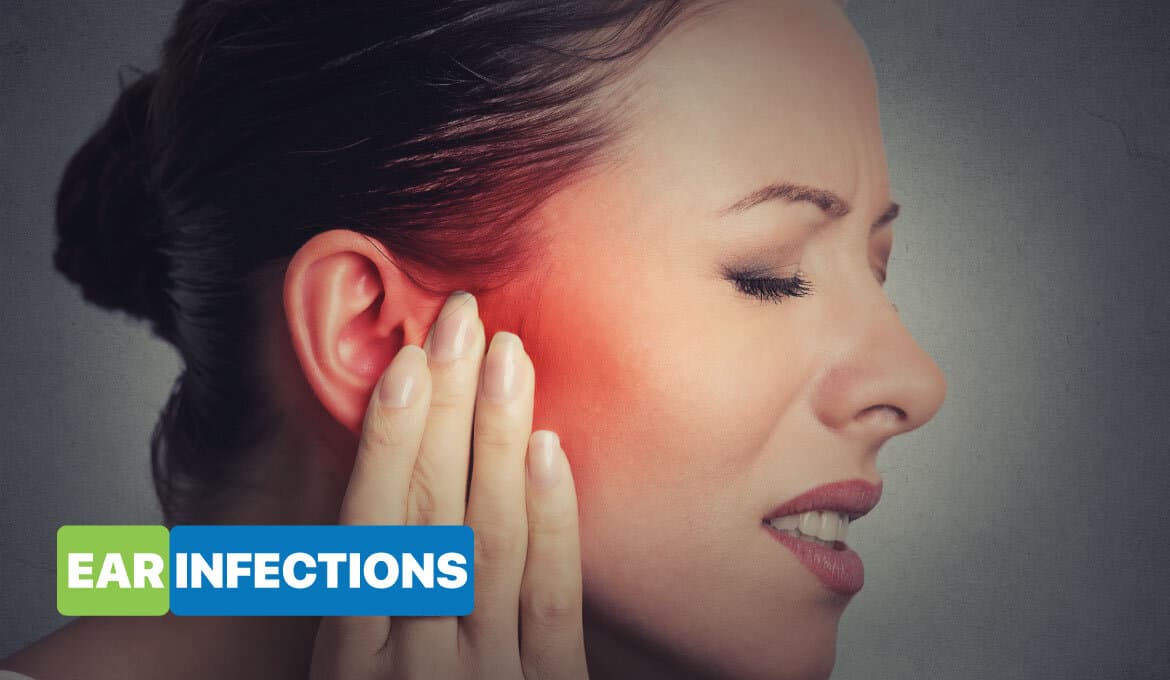
Do you feel you have constant mucus in your throat? If yes, then what is causing this sticky gunk? How do you get rid of mucus from your throat?
Being sick is never fun, but it gets much worse when you have a cold, along with lots of mucus. This may result in uncomfortable symptoms like coughing, sore throats, and difficulty breathing. When this happens, you're probably wondering about how to get rid of mucus quickly.
Luckily, there are several ways you can try to treat excessive phlegm. But why do we get mucus in the first place? There are many reasons for that.
Most of them are not a reason for concern, but sometimes they could be a sign of a more serious health issue. Understanding the causes of your mucus can help you manage it.
This blog covers the real causes behind this gluey substance and tips on how to get rid of mucus in your throat.
What is Mucus?
To begin, it is important to understand that mucus has a purpose. Mucus is a thick, sticky liquid, primarily composed of water, salt, and antibodies. It is meant to help capture and remove bacteria and other unwanted particles/microorganisms from your nose and throat.
Consider it a line of protection, a barrier between your body and a potentially hazardous antigen. Luckily, this is usually only a temporary condition. Mucus production levels return to normal once your body fights off an infection or inflammation.
The truth is we always have mucus in our bodies, but it becomes obvious and annoying when our bodies produce too much. This is referred to as phlegm, which is thicker and stickier mucus that can cause discomfort.
They are often fuzzy and white in appearance. Speak with your doctor if you observe various colored phlegm coming out, such as green, yellow, or red.
What Causes Mucus In The Throat?
Oftentimes, we don't notice phlegm until our bodies start producing lots of it as a result of disease. When we have an infection, our airway glands produce phlegm by producing thicker mucus to help us fight it off.
There are a plethora of reasons and health conditions that may trigger excess mucus production. Some of the common causes are:
i) Acid reflux –
Acid reflux happens when stomach acid travels up your esophagus and settles in the back of your throat. This irritates the throat and causes excessive mucus production in the throat and nasal passages, resulting in postnasal drip as your esophagus tries to clear out the acid.
Gastric fluid reflux may occur with or without heartburn and can result in phlegm buildup.
ii) Allergies –
Another common cause behind mucus production is allergies. Yes, you guessed it right.
Itchy eyes, sneezing, chest tightness, and coughing can all be symptoms of allergies.
These allergic reaction symptoms compel the body to secrete more mucus in an attempt to remove allergens from the respiratory tract. This might result in a buildup of liquid and shortness of breath.
iii) Asthma –
Asthma is an inflammatory illness of the respiratory system that causes the airways to shrink and constrict, making breathing difficult. This can result in an increase in mucus production to protect the lungs from damage.
If it is wet with little amounts of white or clear mucus, it indicates that your airways are inflamed. If you frequently cough up thick phlegm, this could be a warning sign of a bacterial illness that necessitates immediate medical treatment.
iv) Dehydration –
When your body becomes dehydrated, mucus may thicken and make it harder for cilia, microscopic hairs, to move mucus through the body. This makes phlegm seem trapped and makes it harder for you to cough it up.
So try to avoid having caffeinated beverages because the caffeine present in tea, coffee, or energy drinks can lead to dehydration. This makes mucus formed by the cells in your nasal and respiratory passages even thicker.
v) Lung-related diseases –
Excess mucus production in the lungs can be brought on by a number of respiratory conditions, including emphysema, COPD, pneumonia, and chronic bronchitis.
Moreover, long-term exposure to irritants of the lungs, such as cigarette smoke, is usually the cause of emphysema and chronic bronchitis.
vi) Smoking –
Tobacco smoke can irritate the lungs, resulting in symptoms such as chest pain, wheezing, and coughing.
Hot smoke is a chemical irritant that causes your body to develop more mucus in order to defend itself. Also, smokers are more likely to develop chronic bronchitis, which can contribute to excessive mucus coughing.
vii) Dry air –
Mucus can result from the environment you are in, such as dry air or low humidity. If there is insufficient moisture, the lining of your nose becomes inflamed, causing the body to overproduce mucus.
The air usually tends to be dryer on the colder winter days outside.
How To Get Rid Of Mucus In The Throat?
Even though mucus is a necessary part of our immune system, having too much phlegm can cause a number of unwanted symptoms, such as coughing and chest pain.
Like any other disease, mucus is best treated by treating the underlying cause, be it an infection, allergies, etc.
Let's explore some effective ways to get rid of mucus in your throat fast.
1. Hydrate yourself
Staying hydrated may help in keeping the mucus thin. Hot beverages, in particular, could be helpful in clearing nasal congestion. If you can't live without tea, add honey to help relieve excess coughing.
However, it is best to limit your coffee consumption as it may raise your risk of developing phlegm.
2. Install a humidifier
Once again, dryness is the enemy when it comes to mucus.
Maintaining a moist atmosphere may help avoid nasal passage irritation while encouraging the drainage of mucus. This will make it easier to cough it up.
So, try setting up a cool-mist humidifier, especially in your bedroom, to add moisture to the air you breathe.
Alternatively, you may want to take a hot, steamy shower. According to research, doing this will help you maintain a warm body temperature and fend against infection or cold.
3. Use nasal saline spray.
By using a nasal spray, you can break up mucus, clear your sinuses, reduce congestion, and moisturize your nose. Using saline rinses, particularly with a neti pot, remove the infection.
Make sure to choose sterile sprays that have only sodium chloride, and use sterile or distilled water when rinsing.
4. Gargle with warm salt water
This is the most classic remedy that provides instant relief. While there isn't much study on this form of treatment, gargling with salt water may help lower throat inflammation. This home remedy could also help in the prevention of upper respiratory tract infections.
Simply add half a teaspoon of salt to a glass of warm water and gargle it down your throat. This will help soothe a sore throat. You can continue this method whenever necessary throughout the day, perhaps every 2-3 hours.
5. Use eucalyptus
Although evidence to support it isn't strong, a lot of people believe that applying eucalyptus on the chest relieves discomfort caused by mucus accumulation in the throat. It works by releasing the mucous, allowing you to cough easily.
At the same time, the eucalyptus oil may help soothe that irritating cough. You can either inhale the vapor through a diffuser or apply a eucalyptus balm on your skin.
6. Try certain foods
What you eat can greatly impact mucus production. Certain vegetables and fruits can help break down thick mucus. Some of the foods you should eat to fight against your phlegm include:
- Ginger
- Garlic
- Pineapple
- Apple cider vinegar
- Broth soups
- Onions
7. Avoid alcohol consumption and smoking.
If a person consumes too much alcohol, they become dehydrated.
Furthermore, excessive alcohol consumption may adversely affect the mucociliary transport system, which is responsible for removing phlegm from the respiratory passages. When it is damaged, your body will have a difficult time maintaining mucus production.
8. Limit caffeine intake
Caffeine, generally found in coffee, black tea, and energy drinks, can cause dehydration, which can further enhance the production of mucus by cells in the nasal and airway passages.
9. Keep your head elevated.
Sleeping with your head elevated can help relieve a persistent cough and mucus caught in your throat. This is because lying flat on your back may worsen discomfort and lead to a buildup of mucus at the back of your throat.
So, to clear the phlegm in your sinuses and avoid a postnasal drip, try sleeping with your head elevated and a few extra pillows under you.
10. Drink peppermint tea
Menthol, an essential oil found in peppermint tea, helps relieve common cold and flu symptoms like coughing, stuffy noses, and severe headaches.
In addition, the antibacterial and anti-inflammatory qualities of peppermint tea help the body fend off colds and heal more quickly.
11. Drink turmeric with milk.
We've all heard of this fancy combination when dealing with the common cold. It works like magic! The curcumin in turmeric can help fight against infection, which may be causing mucus formation.
It has also been demonstrated to help decongest airways and assist in the removal of excess phlegm.
12. Do not suppress a cough.
When you have a persistent, mucus-filled cough, it can be compelling to use suppressants. However, keep in mind that coughing is the body's method of preventing secretions from entering your throat and lungs. Hence, cough syrup should be used minimally, if at all.
13. Do breathing exercises
Maintaining your lung and breathing health is another beneficial home treatment.
Deep, controlled breathing can help boost your oxygen levels and improve lung function.
This promotes proper use of the diaphragm muscles, thereby helping in breathing. Airway clearance devices such as OPEP (Oscillating Positive Expiratory Pressure) may also help regulate phlegm production while also relieving symptoms.
14. Try OTC and prescribed medications
Many over-the-counter and prescribed drugs can help with mucus or phlegm. However, they must be used in moderation since mucus formation is a natural mechanism for our systems to fight infection, and too much medication may impede this function.
a). OTC Expectorants – Exporants are widely used as cough medicines to clear mucus or phlegm from your throat. Guaifenesin is usually the active ingredient in over-the-counter expectorants.
These drugs work by inhibiting the mucus-producing glands in your chest and throat, which reduces phlegm production. Guaifenesin is the only expectorant available for OTC purchases in the US. Mucinex is a popular brand name that contains guaifenesin.
b). Prescription medications – Mucolytics are mucus thinners that you inhale through a nebulizer, such as hypertonic saline (Nebusal). Your doctor will likely prescribe antibiotics if a bacterial infection is the cause of your excess mucus.
When Should You Consult Your Doctor?
If the above at-home remedies don't work as expected or your mucus does not clear up, it's time to speak to your doctor. Also, if you notice any of the following symptoms, make an appointment right away.
- Excess mucus for over 3-4 weeks
- Thicker phlegm
- Change in mucus color
- Consistent fever (101˚F)
- Chest pain
- Shortness of breath
- Coughing up with blood
- Wheezing
Takeaway
In this blog, we looked at what causes mucus in the throat and how to get rid of it using different approaches. Mucus contains antibodies and enzymes that work to prevent harmful germs, viruses, and allergens from entering and spreading throughout the body.
Excess mucus may irritate your throat in the short term, but over-the-counter drugs and lifestyle changes can surely help.
Although excessive phlegm is normally not a cause for concern, it may signify a more serious condition in rare situations. If you experience persistent and recurring overproduction of mucus, contact your healthcare provider or doctor.
FAQs
1. How to get rid of mucus in the throat fast?
Ans: Some self-care tips will help you get rid of mucus in your throat fast. Gargling with salt water, using saline spray, staying hydrated, and using a humidifier can all help minimize mucus production. There are also OTC drugs, such as guaifenesin, that may help thin your mucus.
2. What causes mucus in the throat?
Ans: Upper respiratory infections, such as the common cold or flu, are the most prevalent cause of excessive mucus in the throat. Asthma, chronic bronchitis, and acid reflux may all result in throat irritation and excess mucus.
3. Why do I have mucus in my throat?
Ans: Mucus in your throat is associated with an inflammatory reaction that is meant to protect you. It has enzymes and antibodies that prevent pathogens from entering the body and spreading disease.
4. What is the best medicine for mucus and phlegm?
Ans: Guaifenesin is an expectorant that is often regarded as the most effective cure for mucus or phlegm. This medication thins and loosens mucus in the lungs, making it easier to cough it up.
5. Does coughing up mucus mean I'm getting better?
Ans: Yes, while the presence of mucus could indicate an underlying problem, coughing up mucus is actually helpful since it helps flush out irritants, toxins, and infections from your system.
6. Is it better to spit or swallow mucus?
Ans: Many doctors have stated that it makes no difference whether you spit or swallow mucus. Getting rid of it won't make you feel any better faster, but it can be annoying.
7. What's the difference between mucus and phlegm?
Ans: Mucus and phlegm differ slightly. The mucus is produced by the lower airways in response to inflammation. Meanwhile, phlegm is defined as excessive mucus coughed up.
Read Also:







